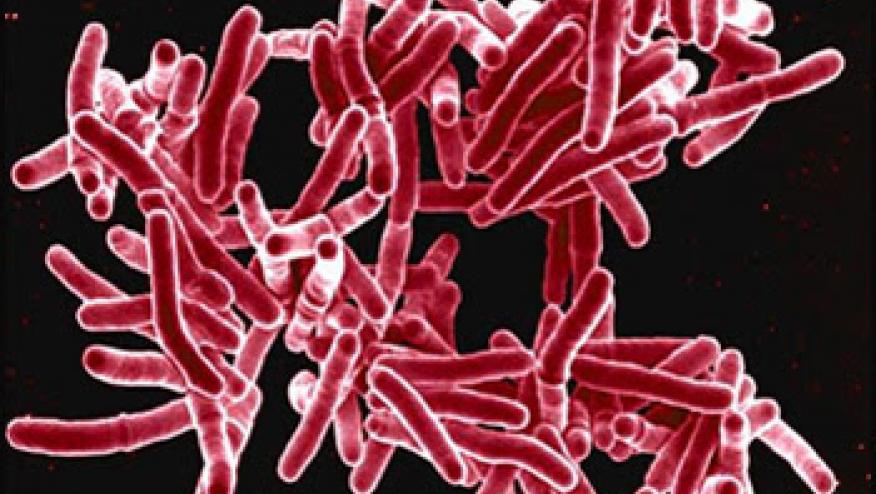2022 EULAR Recommendations for Screening and Prophylaxis of Chronic and Opportunistic Infections Save

A EULAR Task force has developed recommendations for screening and prophylaxis of chronic and opportunistic infections in patients with autoimmune inflammatory rheumatic diseases (AIIRD).
The international EULAR Task Force (TF) consisted of 22 members from 15 countries, and included two patient research partners, two healthcare professionals in rheumatology, two infectious disease doctors with an interest in rheumatology and one pulmonologist were included in addition to rheumatologists/epidemiologists (including two EMEUNET members). The TF was charged with performing a systematic literature review that would guide the recommendations. The level of evidence and grade of recommendation were assigned for each recommendation.
Overall there are 4 overarching principles that highlight the need for infections to be discussed with patients and with other medical specialties, in accordance with national regulations an knowing which drugs mandate which screening measure and preferably screening before or with initiation of therapy. Screening for latent tuberculosis should be done before conventional synthetic DMARDs, biologic/targeted synthetic DMARDs, glucocorticoids and immunosuppressants. Interferon gamma release assay should be preferred over tuberculin skin test, where available. All patients should be tested for hepatitis B (HBV) and C (HCV). Patients who are non-immune to varicella zoster virus should be informed about the availability of postexposure prophylaxis should they have contact with this pathogen. Prophylaxis against Pneumocystis jirovecii seems to be beneficial in patients treated with daily doses >15–30 mg of prednisolone or equivalent for >2–4 weeks.
Opportunistic and chronic infections are of particular concern to those who are immunocompromised, especiallyin the setting of autoimmune inflammatory rheumatic diseases (AIIRD). A regimented and evidence based approach to the screening and prophylaxis against opportunistic infections is needed.
Overarching Principles
- The risk of chronic and opportunistic infections should be considered and discussed with all patients with AIIRD prior to treatment with csDMARDs, tsDMARDs, bDMARDs, immunosuppressants and/or glucocorticoids and reassessed periodically.
- Collaboration between rheumatologists and other specialists including but not limited to infectious disease doctors, gastroenterologists, hepatologists and pulmonologists is important.
- Individual risk factors should be considered in the decision for screening and prophylaxis of chronic and opportunistic infections and reassessed periodically.
- National guidelines and recommendations, among other country/region-level factors pertaining to endemic infectious diseases, should be considered.
Recommendations
- Screening for latent tuberculosis is recommended in patients prior to starting bDMARDs or tsDMARDs*. Screening should also be considered in patients with increased risk for latent tuberculosis prior to starting csDMARDs, immunosuppressants* and/or glucocorticoids (according to dose and duration).
- Screening for latent tuberculosis should follow national and/or international guidelines and would typically include a chest X-ray* and Interferon-gamma release assay over tuberculin skin test where available.
- Choice and timing of latent tuberculosis therapy should be guided by national and/or international guidelines. Special attention should be given to interactions with drugs commonly used to treat AIIRD.
- All patients being considered for treatment with csDMARDs, bDMARDs, tsDMARDs*, immunosuppressants* and glucocorticoids (according to dose and duration) should be screened for HBV.
- Screening for chronic hepatitis C should be considered in patients prior to starting csDMARDs, bDMARDs, tsDMARDs*, immunosuppressants and glucocorticoids* (according to dose and duration). Screening is recommended for patients with elevated alanine aminotransferase or those with known risk factors.
- Screening for HIV is recommended prior to treatment with bDMARDs and should be considered prior to treatment with csDMARDs, tsDMARDs, immunosuppressants and glucocorticoids (according to dose and duration).
- All patients commencing csDMARDs, bDMARDs, tsDMARDs, immunosuppressants and/or glucocorticoids (according to dose and duration) who are non-immune to VZV should be informed about post-exposure prophylaxis following contact with VZV.
- Prophylaxis against PCP should be considered in patients with AIIRD in whom high doses of glucocorticoids are used, especially in combination with immunosuppressants* and depending on the risk–benefit ratio. (EDITORS NOTE: THE LITERATURE and EXPERIENCE SUGGESTS THAT PCP PROPHYLAXIS SHOULD ALSO BE CONSIDERED IN PATIENTS RECEIVING RITUXIMAB)
*Denotes separate LoE and GoR, where this is different from the rest of the statement.
Abbreviations: AIIRD, autoimmune inflammatory rheumatic diseases; bDMARDs, biological disease-modifying antirheumatic drugs; csDMARDs, conventional synthetic disease-modifying antirheumatic drugs; GoR, grade of recommendation; HBV, hepatitis B virus; LoA, level of agreement; LoE, level of evidence; NA, not applicable; PCP, pneumocystis pneumonia; tsDMARDs, targeted synthetic DMARDs; VZV, varicella zoster virus.










If you are a health practitioner, you may Login/Register to comment.
Due to the nature of these comment forums, only health practitioners are allowed to comment at this time.